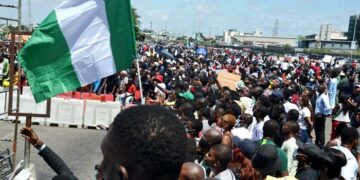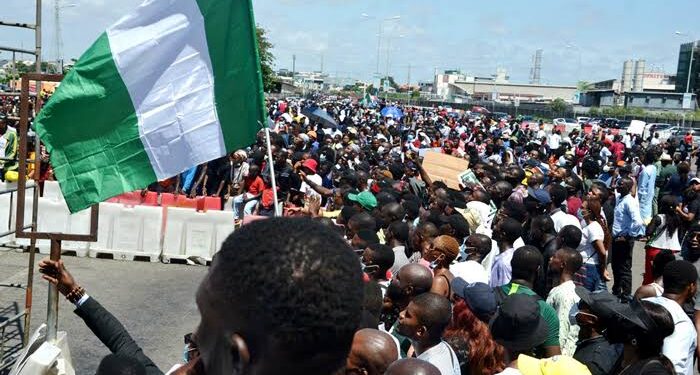By John Ikani
Numerous Nigerians marked the anniversary of the historic protests against police brutality, which occurred three years ago. Amnesty International revealed that approximately 15 protesters from that time are still being held unlawfully.
Back in October 2020, thousands of Nigerians nationwide rallied against the abuses committed by the now-disbanded Special Anti-Robbery Squad, known as SARS. In Lagos, security forces fired upon demonstrators, drawing global condemnation. A government-sanctioned inquiry labelled the incident a massacre.
Amnesty International’s Nigeria office reported that a minimum of 15 protesters detained three years ago remain imprisoned in Lagos, with most awaiting trial and some enduring torture, as they listed the victims’ names in a statement.
In Lagos, a small group organized a rally to demand justice for police brutality victims. Adebowale Adebayo, popularly known as Mr. Macaroni, a Nigerian actor and one of the organizers, stated, “Nobody is going to be happy when you are unjustly killing people, suffering them, oppressing them.”
The #EndSARS hashtag resurged across various social media platforms in Nigeria, with many discussing ongoing alleged abuses by Nigerian police officers.
Isa Sanusi, director of Amnesty International Nigeria, criticized the Nigerian authorities for their disregard for human rights, echoing allegations that protesters were targeted while their pleas for justice went unanswered. Sanusi stressed, “Three years in detention without trial is a travesty of justice. This shows the authorities’ contempt for due process of law. The protesters must be immediately and unconditionally released.”
Concerns were also raised about the true death toll from the Lagos shooting, with the government still facing accusations of a cover-up.
A judicial panel appointed by the Lagos state government reported 11 fatalities. However, this year in July, the government confirmed a leaked memo from local media indicating that more than 100 bodies were recovered during the protests. Officials argued that these fatalities occurred during violence in various parts of the state and not at the protest site where soldiers opened fire.
Amnesty International Nigeria urged the Nigerian authorities to take decisive steps to end police impunity, including issuing clear directives to the police to respect human rights.



































